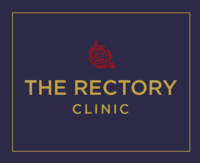Many factors can influence our life: where we go to school, what friends we make, and even the opportunities we have in life.
However, one of the things we don’t usually think about is how our socioeconomic status – the combination of our income, occupation, and social background – can affect our dental health.
The Public Health England released a report which shows that various factors can impact our health.
“Inequalities by individual socioeconomic position and area deprivation were the most researched topics and there is clear and consistent evidence for social gradients in the prevalence of dental conditions, the impact of poor oral health and service use.”
Other reports from around the world also showed similar results: “The fact that children from higher income households have more chances to access dental care, including a more specific diagnostic assessment and have one or more filled teeth, explains some of the differences in oral and dental health due to socioeconomic status.
“Higher prevalence of caries in lower socioeconomic status may be due to lack of prevention and treatment services as well as poor diet high in sugar. It is important that children and their parents with low socioeconomic level are educated in oral health, awareness raising, and guided to use treatment services more.”
So, what can we do to help those who may find themselves, through no fault of their own, in this situation?
We believe that education is at the centre of how to help to overcome this problem and that by providing oral health information to people who need it most, we can be more effective at supporting this goal.
Many dental problems can be prevented by educating everyone, regardless of their socio-economic background to take better care of their own teeth at home and have a healthy diet. Dental caries is a largely preventable disease. One way we can help prevent dental decay is with good fluoride toothpaste, an effective toothbrushing technique, and a diet low in sugar.
You should be brushing for at least two minutes, last thing at night and at least one other time during the day, using toothpaste that contains 1,350 to 1,500 ppm fluoride (parts per million) if you are over 3 years old.
Under three’s should use a smear of toothpaste with at least 1000 ppm fluoride.
Adults should also clean in-between their teeth once a day, using either interdental toothbrushes, dental tape, or floss.
The majority of children are not shown in schools how to brush their teeth effectively to keep them clean and help to prevent dental disease.
Dental Buddy is a free educational resource that can be used by teachers and educators to help children to learn about their teeth and mouths and how to look after them correctly.
It is much better to develop good oral hygiene habits in childhood and these will then continue into adulthood.
For adults, oral health education can be more difficult. Almost two in five (39%) adults do not attend the dentist regularly.
However, if they do have a regular dentist, oral hygiene instruction is part of the NHS provision, so if the patient or their dentist has any concerns about their toothbrushing regime, advice and guidance on how to keep their mouths clean can be offered. The dentist may refer to a dental hygienist or oral health educator for this.
For adults that are unable to access regular dental visits, the dental profession will need to find other ways to get the dental health message across. This could include how to look for the most appropriate and cost-effective dental products to get the best results.
Whilst the top-of-the-range dental products can cost several hundreds of pounds, there are oral health products available to suit every pocket. Many online and High Street stores have some great offers on rechargeable, electric toothbrushes for around £15-£20.
It may be worth asking employers if they offer any private healthcare schemes or plans, that cover dental treatment. These schemes include a ‘money back’ plan where you get a certain amount of money towards your dental treatment per year.
How much you can claim back, will depend on the level of coverage that you have.
Other private health care schemes may fully cover any basic dental treatment and regular check-ups and cleaning. By using the system to keep on top of your oral health and attending your dentist for regular check-up appointments, as often as they recommend, you can save money in the long run as any dental issues can be picked up whilst they are small and easier to treat. This will also help to prevent dental pain and gum disease.
Prevention is always the best way to ensure that your teeth and gums continue to be healthy and will enable you to keep your teeth for life.

